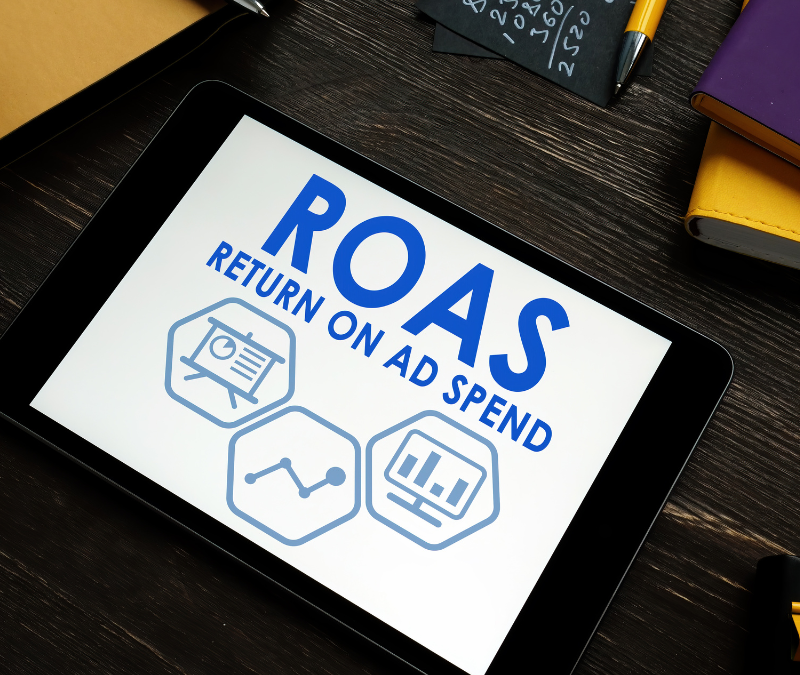Introduction
Google Ads is an essential tool for businesses looking to reach their target audience and increase their online visibility. However, staying up to date with Google’s ever-evolving algorithm can be a challenging task for many advertisers. In this blog post, we will discuss the importance of keeping up with Google Ads algorithm updates and provide valuable tips for maintaining success in your advertising campaigns.
Adapting to Algorithm Changes
Google frequently updates its ad ranking algorithm to ensure that users are provided with the most relevant and useful ads. As an advertiser, it is crucial to stay informed about these changes and adapt your strategies accordingly. Here are some key points to consider when adapting to algorithm changes:
1. Stay Informed
It is essential to stay up to date with Google’s algorithm updates by regularly checking Google’s official announcements and industry forums. This knowledge will help you understand how changes in the algorithm may impact your ad campaigns and give you insights into potential improvements you can make.
2. Analyze Performance Metrics
Regularly analyze your campaign performance metrics to identify any significant changes or trends. Monitor important metrics such as click-through rates (CTR), conversion rates, and Quality Score. Sudden drops or increases in these metrics may indicate the impact of algorithm updates. Use this data to make informed decisions about your ad campaigns.
3. Test, Test, Test
Constantly testing different ad copy, landing pages, keywords, and bidding strategies is crucial to stay ahead of algorithm changes. By testing various elements of your campaigns, you can identify what works best for your target audience and optimize for better performance. This proactive approach will help you adapt to any algorithm updates and maintain a competitive edge.
4. Focus on User Experience
Google’s algorithm updates often prioritize user experience. Ensure that your landing pages provide relevant and engaging content, are mobile-friendly, and have fast loading times. Consider user intent when designing your ad campaigns and landing pages. By focusing on user experience, you will not only align with Google’s algorithm but also provide value to your potential customers.
Tips for Google Ads Success
While keeping up with algorithm updates is crucial, there are also several foundational strategies that can help you achieve success with Google Ads. Here are some valuable tips:
1. Set Clear Goals
Before launching your ad campaigns, establish clear and measurable goals. Whether you aim to increase website traffic, generate leads, or boost sales, defining your objectives will guide your campaign structure and performance tracking.
2. Understand Your Target Audience
Knowing your target audience is fundamental for crafting effective ad campaigns. Conduct market research to identify your ideal customers, their demographics, interests, and preferences. This insight will enable you to tailor your ad content and targeting strategies to reach the right audience at the right time.
3. Implement Conversion Tracking
Conversion tracking allows you to measure the success of your campaigns by tracking specific actions that users take on your website. By implementing conversion tracking, you can evaluate the effectiveness of your ads, optimize your bidding strategies, and make data-driven decisions to improve campaign performance.
4. Optimize Ad Copy and Keywords
Create compelling ad copy that resonates with your target audience. Use relevant keywords that align with your business offerings to increase ad visibility. Continually optimize your ad copy and keywords based on performance data and user feedback to improve ad relevance and attract more clicks.
5. Regularly Monitor and Adjust
Monitor your campaign performance regularly and make necessary adjustments. Continuously analyze your ad performance metrics, including impressions, clicks, and conversions, and make data-driven optimizations to maximize your ROI. Stay vigilant and adapt your strategies based on the changing advertising landscape.
Google Ads Algorithm Updates
Google frequently updates its ad ranking algorithm to ensure that users are provided with the most relevant and high-quality ads. While the specifics of each update are typically not disclosed, Google often announces significant algorithm changes and provides guidance for advertisers. Here are a few notable updates that have had a significant impact on Google Ads:
1. Quality Score Update
Google’s Quality Score is a crucial metric that measures the relevance and quality of your keywords, ads, and landing pages. In recent years, Google has made updates to its Quality Score algorithm to provide a more accurate assessment of the user experience. Advertisers need to focus on improving their Quality Scores to achieve better ad rankings and lower cost-per-click.
2. Mobile-Friendly Algorithm
With the increasing use of mobile devices, Google introduced a mobile-friendly algorithm update that prioritizes websites optimized for mobile browsing. Advertisers must ensure their landing pages are mobile-friendly, fast-loading, and offer a seamless user experience on mobile devices to maintain ad visibility and conversions.
3. Machine Learning Updates
Google’s machine learning algorithms play a vital role in ad targeting and optimization. Google has been continuously refining its machine learning capabilities to deliver more precise ad targeting and improve overall ad performance. Advertisers should embrace machine learning and leverage Google’s automated bidding strategies for better campaign outcomes.
4. Core Updates
Google periodically rolls out core updates that can have a substantial impact on organic search results and, consequently, paid search ads. Advertisers need to stay informed about these updates and analyze their effects on ad rankings and performance.
In conclusion, staying informed about Google Ads algorithm updates is crucial for advertisers looking to maintain success in their campaigns. By adapting to algorithm changes, implementing best practices, and continuously optimizing your campaigns, you can stay ahead of the competition and maximize your return on investment in Google Ads.

